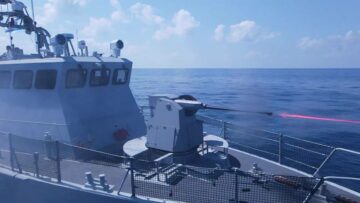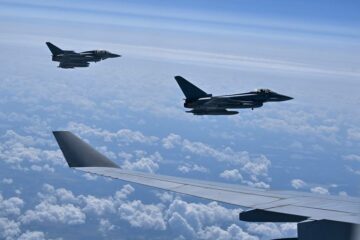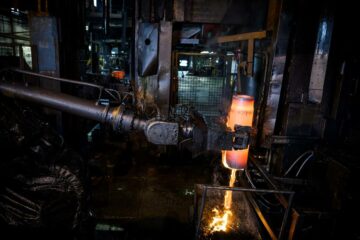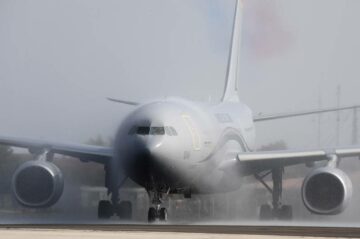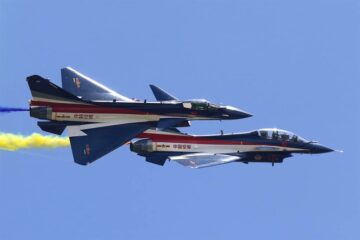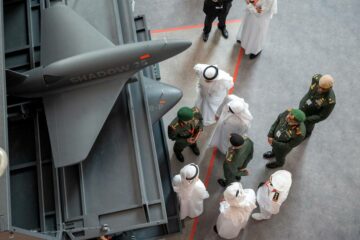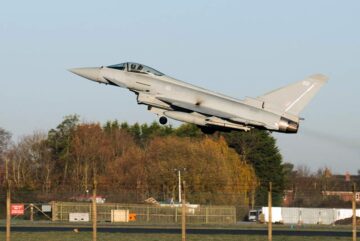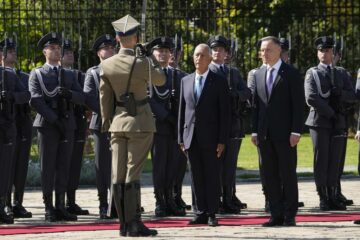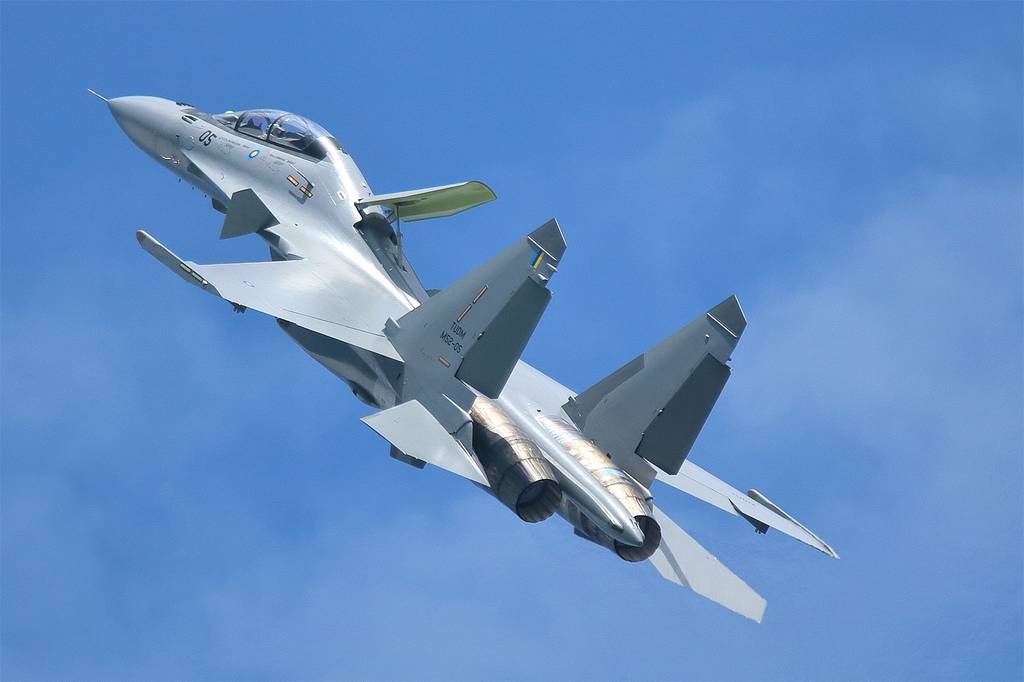
SINGAPORE — With the allure of Russian weapons waning in the shadow of the Ukraine war, Malaysia is considering pivoting to other Asian suppliers while also attempting to build a local industry.
Malaysia’s defense capabilities have historically been highly dependent on foreign suppliers, and Russia has been among Kuala Lumpur’s main dealers in the aerospace sector.
This appears to be changing, as the Russian-made aircraft the country operates are now facing a number of shortcomings. In 2017, Malaysia retired from service its MiG-29 fighter aircraft and has also struggled to keep its Su-30MKM ground-attack aircraft operational.
At the Singapore Airshow here, a Malaysian Air Force jet, a Moscow-supplied Su-30, was one of the only visible displays of military equipment made in Russia. At some point in the future, there may be next to none at all left flying, according to the plane’s pilot, who asked to remain unnamed for security reasons.
The West’s sanctions against Russia represent one of the key reasons why the government is looking to buy elsewhere, the pilot told Defense News.
Bans placed on Moscow after its troops invaded Ukraine are preventing Malaysia from buying the Su-30 directly from the Kremlin, implying that existing stocks of spare ones could run out, an analysis by the International Institute for Strategic Studies found.
One of the countries attempting to jump into the business is South Korea, which signed a contract last year to provide 18 Korean-made FA-50 fighter jets to Malaysia.
On Jan. 27, South Korea and Malaysia also held defense talks in Seoul to discuss boosting bilateral security partnerships and joint drills.
Malaysia has also launched a renewed effort at building up its own defense industrial base. With the launch of the Malaysian Aerospace Industry Blueprint 2030, and an increase in its defense budget, the country is looking to position itself as Southeast Asia’s strongest aerospace market.
A report published this year by the U.S. International Trade Administration highlighted that the Malaysian government “hopes to strengthen domestic manufacturing capabilities of defense products through collaboration and technology transfer.”
Malaysia is home to over 200 aerospace companies, including both international and local industry actors, the report noted.
Elisabeth Gosselin-Malo is a Europe correspondent for Defense News. She covers a wide range of topics related to military procurement and international security, and specializes in reporting on the aviation sector. She is based in Milan, Italy.
- SEO Powered Content & PR Distribution. Get Amplified Today.
- PlatoData.Network Vertical Generative Ai. Empower Yourself. Access Here.
- PlatoAiStream. Web3 Intelligence. Knowledge Amplified. Access Here.
- PlatoESG. Carbon, CleanTech, Energy, Environment, Solar, Waste Management. Access Here.
- PlatoHealth. Biotech and Clinical Trials Intelligence. Access Here.
- Source: https://www.defensenews.com/global/asia-pacific/2024/02/21/malaysia-is-becoming-wary-of-its-russian-made-weapons/
- :has
- :is
- $UP
- 10
- 200
- 2017
- 2030
- 27
- 70
- a
- According
- actors
- administration
- Aerospace
- After
- against
- AIR
- Air Force
- aircraft
- All
- allure
- also
- among
- an
- and
- appears
- ARE
- AS
- Asia’s
- asian
- asked
- At
- attempting
- aviation
- base
- based
- BE
- becoming
- been
- bilateral
- blueprint
- boosting
- both
- budget
- build
- Building
- business
- buy
- Buying
- by
- capabilities
- changing
- collaboration
- Companies
- considering
- contract
- could
- countries
- country
- covers
- dealers
- Defense
- dependent
- directly
- discuss
- displays
- Domestic
- effort
- elsewhere
- equipment
- Europe
- existing
- facing
- flying
- For
- Force
- foreign
- found
- from
- future
- Government
- Have
- Held
- here
- Highlighted
- highly
- historically
- Home
- HTTPS
- images
- in
- Including
- Increase
- industrial
- industry
- Institute
- International
- International Trade
- into
- Italy
- ITS
- itself
- Jan
- Jets
- joint
- jpg
- jump
- Keep
- Key
- korea
- Kremlin
- kuala
- Last
- launch
- launched
- left
- local
- looking
- made
- Main
- Malaysia
- Malaysian
- manufacturing
- Market
- May..
- MILAN
- Military
- Moscow
- news
- next
- None
- noted
- now
- number
- of
- on
- ONE
- ones
- only
- operates
- operational
- Other
- out
- over
- own
- partnerships
- pilot
- placed
- plato
- Plato Data Intelligence
- PlatoData
- Point
- position
- preventing
- procurement
- Products
- provide
- published
- range
- reasons
- related
- remain
- renewed
- report
- Reporting
- represent
- Run
- Russia
- russian
- s
- Sanctions
- sector
- security
- Seoul
- service
- Shadow
- she
- shortcomings
- Singapore
- some
- South
- South Korea
- southeast
- specializes
- Stocks
- Strategic
- Strengthen
- strongest
- studies
- suppliers
- Talks
- Technology
- that
- The
- The Future
- There.
- this
- this year
- Through
- to
- told
- Topics
- trade
- transfer
- u.s.
- Ukraine
- ukraine war
- UNNAMED
- visible
- war
- was
- Weapons
- which
- while
- WHO
- why
- wide
- Wide range
- with
- year
- zephyrnet

